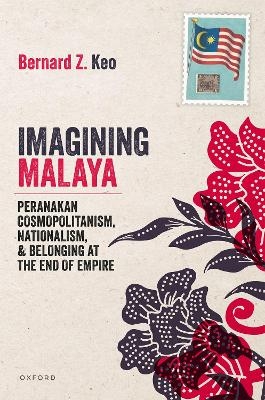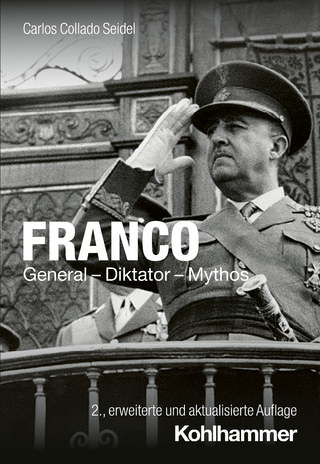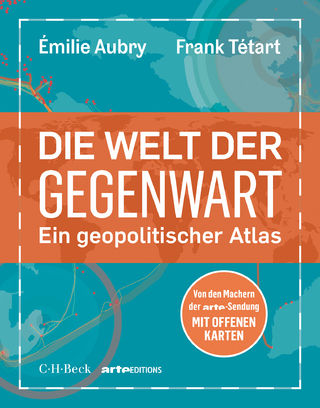
Imagining Malaya
Peranakan Cosmopolitanism, Nationalism, and Belonging at the End of Empire, 1945–1957
Seiten
2025
Oxford University Press (Verlag)
978-0-19-891708-3 (ISBN)
Oxford University Press (Verlag)
978-0-19-891708-3 (ISBN)
- Noch nicht erschienen (ca. Februar 2025)
- Versandkostenfrei
- Auch auf Rechnung
- Artikel merken
A political history of Malaysia that prompts reconsideration of the country's path to independence and nationhood, examining the political trajectory of the Peranakan Chinese-a cosmopolitan minority community emerging from intermarriage between ethnic Chinese and ethnic Malays with their own unique culture-in the immediate aftermath of WWII.
This is an open access title available under the terms of a CC BY-NC-ND 4.0 International licence. It is free to read on the Oxford Academic platform and offered as a free PDF download from OUP and selected open access locations.
The end of Britain's empire in Southeast Asia in the wake of World War II generated new opportunities for colonial subjects across the region to reimagine themselves as citizens of a dizzying array of potential new nations. While post-war optimism and a global push for decolonisation created an environment where myriad communities felt a palpable sense of possibility for bringing their aspirations of nationhood to life, many of these desires were unfulfilled. Imagining Malaya is an exploration of one of those many imagined nations that never came to be. It narrates a series of seemingly disparate and contradictory political acts by the Peranakan Chinese -- a creolised community borne of intermarriage between the earliest Chinese migrants to the region and indigenous Malays -- in the post-World War II period to demonstrate that the community were, in fact, seeking to bring to life a cosmopolitan, inclusive, and multi-ethnic imagination of the Malay(si)an nation.
Engaging in a critical re-examination of the intertwined processes of decolonization and nation-making, Imagining Malaya provides an alternative reading of Malay(si)a's path to merdeka (independence) from the perspective of the Peranakan. It narrates how a once powerful community at the centre of Malay(si)an politics and society came undone by their attempts to present an alternative imagination of the nation which challenged the ethnocentrism that came to dominate the country's political life. Rewriting the Peranakan into the centre of Malaysia's national story rather than its periphery is a parable on the complexities and pitfalls of attempting to forge a representative nation-state from a multi-ethnic society during the transition between colony and nation. By bringing the Peranakan imaginary of the nation to life, Bernard Z. Keo makes a case for how studying nations that were unrealized can reveal just as much as investigating those that were.
This is an open access title available under the terms of a CC BY-NC-ND 4.0 International licence. It is free to read on the Oxford Academic platform and offered as a free PDF download from OUP and selected open access locations.
The end of Britain's empire in Southeast Asia in the wake of World War II generated new opportunities for colonial subjects across the region to reimagine themselves as citizens of a dizzying array of potential new nations. While post-war optimism and a global push for decolonisation created an environment where myriad communities felt a palpable sense of possibility for bringing their aspirations of nationhood to life, many of these desires were unfulfilled. Imagining Malaya is an exploration of one of those many imagined nations that never came to be. It narrates a series of seemingly disparate and contradictory political acts by the Peranakan Chinese -- a creolised community borne of intermarriage between the earliest Chinese migrants to the region and indigenous Malays -- in the post-World War II period to demonstrate that the community were, in fact, seeking to bring to life a cosmopolitan, inclusive, and multi-ethnic imagination of the Malay(si)an nation.
Engaging in a critical re-examination of the intertwined processes of decolonization and nation-making, Imagining Malaya provides an alternative reading of Malay(si)a's path to merdeka (independence) from the perspective of the Peranakan. It narrates how a once powerful community at the centre of Malay(si)an politics and society came undone by their attempts to present an alternative imagination of the nation which challenged the ethnocentrism that came to dominate the country's political life. Rewriting the Peranakan into the centre of Malaysia's national story rather than its periphery is a parable on the complexities and pitfalls of attempting to forge a representative nation-state from a multi-ethnic society during the transition between colony and nation. By bringing the Peranakan imaginary of the nation to life, Bernard Z. Keo makes a case for how studying nations that were unrealized can reveal just as much as investigating those that were.
Bernard Z. Keo is an Assistant Professor of International History and Politics at the Geneva Graduate Institute. A political historian by training, he specialises in the intertwined processes of decolonization and nation-making in Malaysia and Singapore following the end of World War II. His further research interests include the Malayan Emergency, urban life in the port-cities of Southeast Asia, and transnational networks across the Malay World. He also teaches and researches in the Digital Humanities, having been part of the team that built Virtual Angkor, an award-winning digital education platform.
| Erscheint lt. Verlag | 6.2.2025 |
|---|---|
| Verlagsort | Oxford |
| Sprache | englisch |
| Maße | 156 x 234 mm |
| Themenwelt | Geschichte ► Allgemeine Geschichte ► Zeitgeschichte |
| Geisteswissenschaften ► Geschichte ► Regional- / Ländergeschichte | |
| Geschichte ► Teilgebiete der Geschichte ► Kulturgeschichte | |
| ISBN-10 | 0-19-891708-2 / 0198917082 |
| ISBN-13 | 978-0-19-891708-3 / 9780198917083 |
| Zustand | Neuware |
| Informationen gemäß Produktsicherheitsverordnung (GPSR) | |
| Haben Sie eine Frage zum Produkt? |
Mehr entdecken
aus dem Bereich
aus dem Bereich
Gewalt, Umwelt, Identität, Methode
Buch | Softcover (2024)
Spector Books OHG (Verlag)
CHF 49,95


